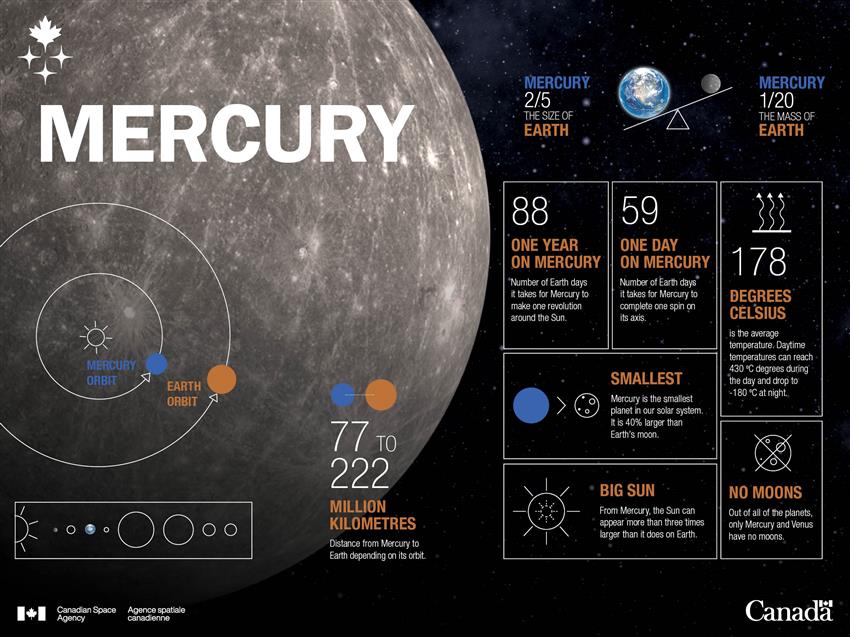Mercury in numbers – infographic

Description
Infographic about Mercury, the solar system's smallest planet. (Credit: Canadian Space Agency)
Text version
This infographic features an image of Mercury along with a series of facts that highlight some of the differences between Mercury and Earth.
- A graphic shows that Mercury and Earth orbit the Sun in the same direction.
- The distance from the Earth to Mercury ranges from 77 to 222 million kilometres depending on its orbit.
- Mercury is two-fifths the size of Earth.
- Mercury is 1/20 the mass of Earth.
- It takes Mercury 88 Earth days to make one revolution around the Sun.
- It takes Mercury 59 Earth days to complete one rotation on its axis.
- Mercury is the smallest planet in our solar system. It is only about 40% larger than Earth's Moon.
- From Mercury, the Sun can appear more than three times larger than it does on Earth.
- The average temperature of Mercury is 178 degrees Celsius. Temperatures can reach 430 degrees Celsius during the day and drop to -180 degrees Celsius at night.
- Mercury has no moons. Of all the planets in our solar system, only Mercury and Venus have no moons.
File size: 0.37 MB
Image size: 2400 x 1800 pixels
Resolution: 144 dpi
Image date: December 24, 2018
Copyright / Permission to reproduce
- Date modified: